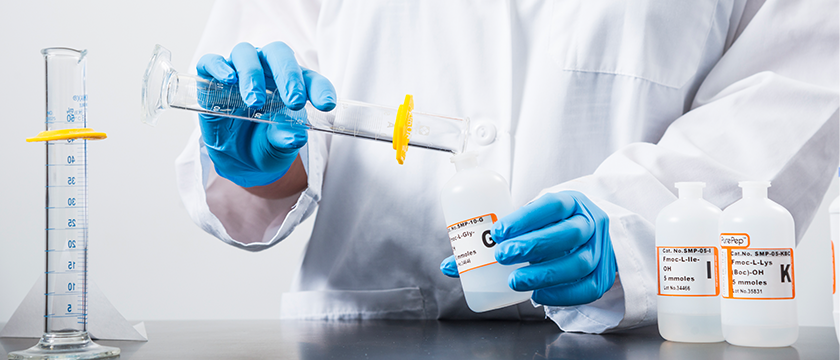In the world of peptide research, purity is everything. Whether you’re developing cutting-edge therapies or conducting critical experiments, the quality of your peptides can make or break your work. But how can you be sure that the peptides you’re buying are of the highest standard? As the demand for peptides grows, so does the market, and not all suppliers offer the same level of quality. Understanding the science behind peptide purity is essential for ensuring successful research outcomes.
Let’s dive into the details and uncover the secrets to selecting the best peptides, so your research remains uncompromised.
What Is Peptide Purity, and Why Does It Matter?
Peptide purity refers to the percentage of the peptide compound that is free from impurities or foreign substances. Peptides can contain contaminants such as residual solvents, synthesis by-products, or other chemicals that may interfere with research outcomes. For researchers, even the slightest impurity can alter results, making it crucial to source peptides with the highest purity levels possible.
Consider this: A research team working on cancer therapies once ordered peptides from a low-cost supplier. Initially, everything seemed fine until repeated tests yielded inconsistent results. After further investigation, they discovered the peptides contained traces of synthesis by-products that skewed their experiments. This unfortunate scenario could have been avoided by choosing a supplier with a strong commitment to purity.
The Different Grades of Peptide Purity
Peptides are often available in various purity grades, each suited for different research purposes. Here’s a breakdown:
- Crude Peptides (Low Purity: 70-75%)
Used primarily in early-stage research or screenings, these peptides contain significant impurities and are not ideal for precise experiments. - Desalted Peptides (Medium Purity: 75-85%)
More refined than crude peptides but still not suitable for high-sensitivity applications. - HPLC Purified Peptides (High Purity: 95%+)
These are the gold standard in peptide research, offering the highest level of purity and reliability. High-performance liquid chromatography (HPLC) is used to remove nearly all impurities, ensuring the peptide’s integrity.
When purchasing peptides, it’s critical to know what level of purity your research requires. For most laboratory work, HPLC-purified peptides are the recommended choice.
How Do Suppliers Ensure Peptide Purity?
Reputable peptide suppliers go through rigorous testing and quality assurance to guarantee the purity of their products. Here’s a typical process used by top-tier suppliers:
- Synthesis and Purification
After peptide synthesis, companies employ HPLC to separate the target peptide from impurities. - Mass Spectrometry and HPLC Analysis
These analytical techniques are used to confirm the peptide’s purity and molecular weight. - Lyophilization (Freeze-Drying)
Once purified, peptides are freeze-dried to preserve their stability during shipping and storage.
Suppliers who provide a Certificate of Analysis (CoA) detailing the purity level and test results are more trustworthy. Always request a CoA to ensure you are getting what you pay for.
Choosing the Best Place to Buy High-Purity Peptides
With countless peptide suppliers online, how do you find the best place to buy high quality peptides? Here are a few tips to keep in mind:
- Look for Transparency
A reputable supplier should openly share their testing methods, certifications, and quality assurance practices. They should also provide CoAs for every batch. - Check Reviews and Recommendations
Feedback from other researchers can provide insights into a supplier’s reliability. Look for consistent positive reviews about purity, shipping, and customer service. - Verify Sourcing Standards
High-quality suppliers often source their raw materials from trusted manufacturers with GMP (Good Manufacturing Practice) certifications. Ensure your supplier follows similar standards to avoid low-grade products.
Let’s take an example from a well-known peptide supplier, Peptide Worldwide. They offer a clear outline of their synthesis process, provide CoAs with every order, and use advanced HPLC methods to guarantee 98%+ purity in their peptides. This level of transparency and commitment to quality makes them a go-to option for researchers worldwide.
Why Peptide Purity Is Crucial for Research Success
Peptide purity doesn’t just influence the reliability of your data; it can also save you time and money. Imagine conducting months of research, only to discover that your data is flawed due to impurities in the peptides you’ve been using. By investing in high-purity peptides from reputable suppliers, researchers can reduce variables and ensure their findings are both accurate and reproducible.
In drug development, even minor impurities can lead to severe consequences. Pharmaceutical companies often spend millions on ensuring peptide purity because contaminated peptides can cause unexpected side effects or ineffective treatments. The same level of caution should be applied to any peptide-based research, no matter the scale.
Conclusion:
As a researcher, your findings rely on the precision and purity of your materials. Understanding peptide purity and choosing the right suppliers is critical to achieving successful outcomes. By selecting peptides from trusted, transparent suppliers and insisting on high-purity products, you can safeguard your research and avoid the pitfalls of contamination.
When looking for the best places to buy peptides, prioritize quality, transparency, and testing standards. After all, your research deserves nothing less than the highest standards of purity.





